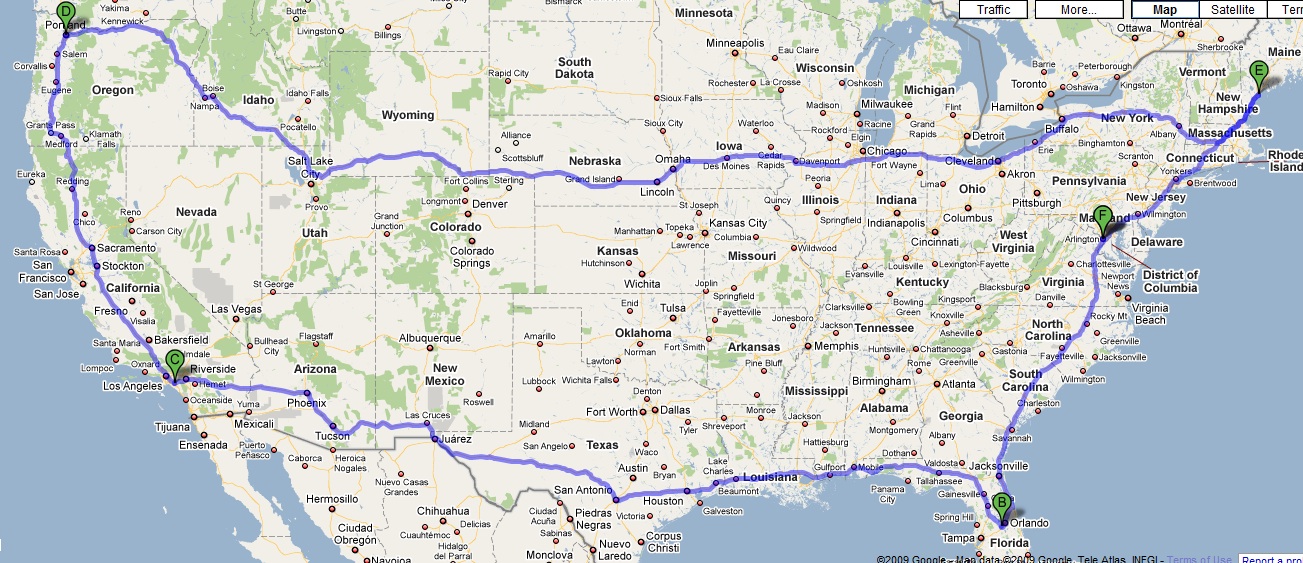
In November 2012, a Missouri couple and an Arizona man shared the largest Powerball jackpot ever -- $587 million. An article about the Missouri couple -- Mark and Cindy Hill -- appeared in The Huffington Post on February 25 telling a wonderful story about how the couple is using their winnings to benefit their community. Such stories lead us to daydream about what we might do if we won all that money.
What are your chances of winning? A quick look at the Powerball website tells you the probability of winning the jackpot is 1 in 175,223,510. To see where that number comes from, imagine purchasing every number combination. In Powerball, a player first picks five different whole numbers between 1 and 59. One could make a list of all the possibilities, starting with (1, 2, 3, 4, 5), (1, 2, 3, 4, 6), and so on all the way through (55, 56, 57, 58, 59). But it would take a long time to make that list, because it has more than five million entries! Indeed, mathematics tells us the number of ways to choose five distinct numbers from 1 to 59 is 5,006,386.
After choosing the five numbers between 1 and 59, the player then picks another number between 1 and 35 that is called the Powerball. So, we multiply the 5,006,386 by 35 and see that there are 175,223,510 possible Powerball combinations. For simplicity, let's be generous and round off to an even 175,000,000.
Your chance of winning the lottery on a single ticket is one in 175 million. That seems tiny, and it is. In fact, it is so small that it is difficult for us to grasp. Understanding how small this number is provides the key to understanding how likely -- or unlikely -- it is you will become the next big winner of the Powerball jackpot.
For some reason, we tend to associate unlikely events with a specific physical phenomenon. "I have a better chance of being struck by lightning," we often say. But that does not provide much of a basis for comparison. We realize being struck by lightning is unlikely, but we have no sense of how unlikely, and of course the chance of being struck by lightning is much different for a farmer than a coal miner.
The problem with grasping the smallness of "1 in 175 million" is that we never see 175 million distinct objects. It is easy to grasp 1 in 50, for example, because we can imagine ourselves with 49 other people in a room. We can get our minds around 1 in 75,000 (roughly) by visualizing the crowd of people at the Super Bowl and imagining ourselves being the one person selected from that crowd to win a prize. But one in 175 million cannot be readily visualized.
Here is an example I have used in classrooms all over the country, and it is way more fun than thinking about being struck by lightning! Imagine 175 million freshly minted one-dollar bills are being delivered to my house near Washington, D.C. One of those dollar bills is specially marked as the "lucky dollar bill." You get to pick a dollar bill, and if you happen to pick the lucky dollar bill, you win all the dollar bills.
A straightforward mathematical calculation using the dimensions of a dollar bill reveals it will take two semi-trailers to deliver the 175,000,000 dollar bills to my house. Once these arrive, they will have to be unloaded, of course, so you will have a fair chance to pick the lucky dollar bill. So, we will lay them out end to end. How long will that line of dollar bills go?
If we start from my house, we'll have enough dollar bills to go all the way south to Disney World in Orlando. Then we'll still have enough to go clear across the country to Disneyland! But, even then, we are not out of dollar bills, so we can go north and make it all the way to Portland, Oregon. Still, we have dollar bills, enough to make it all the way east to Portland, Maine. And, fortunately, we'll have enough to make it back to my house near DC, completing the loop.

Do we have any dollars bills left? Yes! We would still have enough dollar bills to go all the way around the loop a second time!
Now imagine that you walk, bike or drive for as long as you want around the double loop, and when you decide to stop, you stoop over and pick up one dollar bill. Your chance of selecting the lucky dollar bill is one in 175 million, the same as your chance of winning the Powerball jackpot!
Your chance of ever winning this big jackpot is impossibly small. It isn't going to happen. But you might say, "If the chances of winning are so small, how did Mark and Cindy Hill win?" Or said another way, "If they can do it, why can't I?" I'll explain that in a future post.
It is not my purpose or place to discourage people from buying lottery tickets. I just want everyone to understand their chances as fully and accurately as possible.
Wasserstein is executive director of the American Statistical Association, a former statistics professor at Washburn University and an expert on state lotteries.